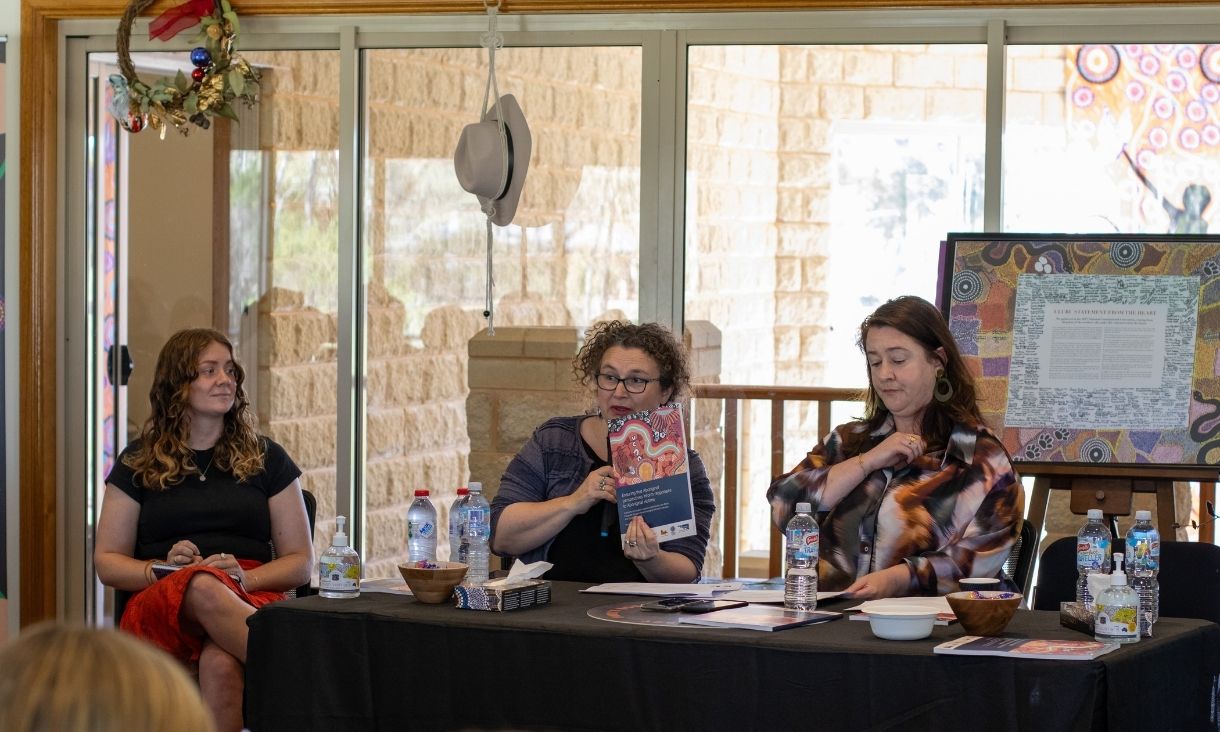Greater recognition and responses to First Nations peoples’ experiences of crime are vital to advancing Victoria’s fifth Aboriginal Justice Agreement, Burra Lotjpa Dunguludja or ‘Senior Leaders Talking Strong’.
The CIJ and First Nations project partners were commissioned to conduct research into the needs and experiences of Aboriginal victims of crime by the Department of Justice and Community Safety.
The first phase of the project incorporated consultations with representatives from the Aboriginal Justice Caucus, the Aboriginal Justice Agreement’s Women, Families and Victims’ Collaborative Working Group, the network of Regional Aboriginal Justice Advisory Committees, as well as practitioners in Aboriginal-identified service roles.
The second phase involved yarns – either as individual yarns or in yarning circles – with 23 Aboriginal people who had experienced a range of crime types, focusing on their experiences of crime and their subsequent interaction with the justice system and support services. Governed by a First Nations-led steering committee, the research was designed to be consistent with the principle of self-determination.
While major systemic reform was clearly needed, Campbell said that Aboriginal communities already held many solutions in their hands.
“Aboriginal communities and organisations are already supporting people around the impacts of crime in multiple ways, usually without adequate resourcing and recognition,” she said.
“Along with the proposals identified in this report, for which the Aboriginal Justice Agreement and Aboriginal Justice Caucus have long called, First Nations communities and organisations like Djirra, hold the self-determined solutions to respond to these alarming findings and must have better recognition and sustained resourcing to deliver on the solutions which we know work for our people,” said Braybrook.
About CIJ: The Centre for Innovative Justice (CIJ) is a research and reform body that researches, advocates and applies innovative ways to improve the justice system, with a particular focus on understanding the ways in which people’s experiences of trauma and disadvantage can push them into contact with legal processes.
About Elena Campbell: Elena Campbell has worked in legal and social policy for 25 years and leads a program of research at the CIJ predominantly focused on domestic, family and sexual violence as well as the way in which trauma can impact or influence people’s contact with legal processes. Elena and her team regularly partner with, or are governed by, Aboriginal-led organisations in this work.
Story: Finn Devlin








